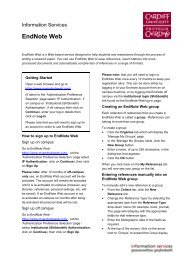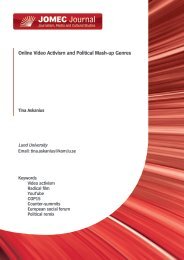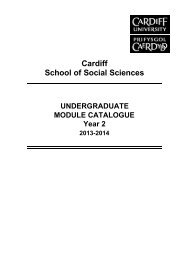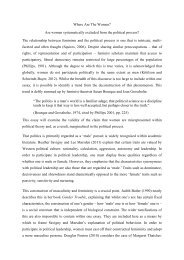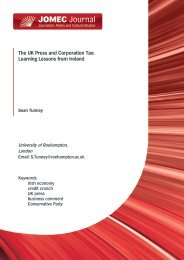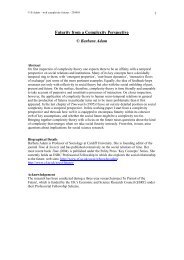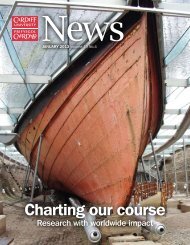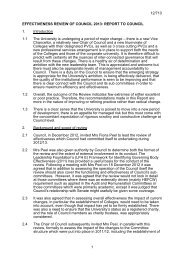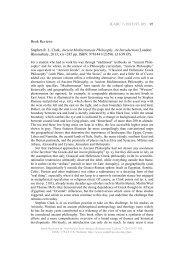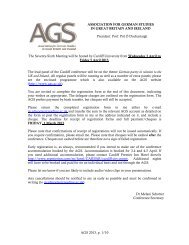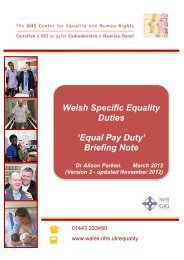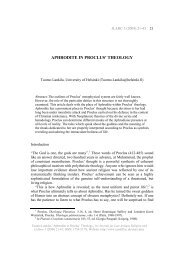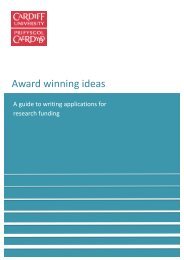Our 'Star' performer - Cardiff University
Our 'Star' performer - Cardiff University
Our 'Star' performer - Cardiff University
Create successful ePaper yourself
Turn your PDF publications into a flip-book with our unique Google optimized e-Paper software.
Research Excellence<br />
Professor Jenny Kitzinger’s research is focused on people’s<br />
experiences of having patients in a long-term coma and their<br />
thoughts on what the patient themselves might have wanted in<br />
this situation. Here, she outlines how her research focus was<br />
shaped by her own personal experience.<br />
“<br />
Modern medicine has become<br />
very good at saving the body. It<br />
is less good at saving or restoring<br />
the brain. Many of us will end our<br />
lives having long lost the mental<br />
capacity to make sense of the world<br />
around us and having become<br />
unable to make decisions for<br />
ourselves.<br />
different universities, and the<br />
RCaH will offer training and<br />
research.<br />
Catalysis science is vital for<br />
many areas of the UK economy.<br />
This investment will provide a<br />
focal point for the UK’s leading<br />
expertise in this area, helping<br />
scientists further develop their<br />
skills and undertake cutting edge<br />
research to drive sustainable<br />
growth.<br />
From a <strong>Cardiff</strong> point of view – it<br />
means we’re positioned firmly at<br />
the heart of this exciting area of<br />
research. ”<br />
When thinking about ‘loss of<br />
mental capacity’ many people’s<br />
first thought is ‘dementia’.<br />
However, my research focuses<br />
on people who are in a prolonged<br />
coma, a ‘vegetative’ state (with<br />
no awareness) or in a minimally<br />
conscious state (with only minimal<br />
and intermittent awareness).<br />
In these cases the loss of mental<br />
capacity is sudden (rather than<br />
a gradual decline). It may result<br />
from, for example, a severe blow to<br />
the head falling off a horse, ski-ing,<br />
or simply driving home from work.<br />
Such injuries often affect healthy<br />
young people – people who<br />
have rarely discussed explicitly<br />
what they would want in such a<br />
circumstance. Once they have lost<br />
capacity, decisions about treatment<br />
are the responsibility of their<br />
clinicians (with input from their<br />
families).<br />
How we treat such patients<br />
raises profound challenges that<br />
are paradigmatic of 21st century<br />
medicine.<br />
The reason I started doing this<br />
research is a combination of the<br />
professional and the personal.<br />
My research career, spanning the<br />
last 25 years, has focused on a<br />
wide range of health and science<br />
issues, often with an emphasis on<br />
examining emerging ethical and<br />
social debates. In the 1980s, for<br />
example, I worked around HIV/<br />
AIDS, and in the 1990s I examined<br />
controversies about human<br />
genetics.<br />
It was my own family experience<br />
however that made me turn my<br />
attention to severe brain injury. In<br />
2009 one of my sisters, Polly, was<br />
left in a prolonged coma after a car<br />
crash. This was a tragedy that took<br />
the whole family on a steep learning<br />
curve and confronted me with the<br />
fact that the media image of ‘coma’ is<br />
very far from reality.<br />
It also made me realize the need for<br />
not just communication research in<br />
this area but for a concerted interdisciplinary<br />
initiative.<br />
I went on to collaborate with<br />
practitioners in neurological care<br />
to research how long-term services<br />
could be improved and worked with<br />
a colleague at Brunel <strong>University</strong><br />
to explore the use of a novel brain<br />
scanning technology on vegetative<br />
patients. In 2011 I also organized a<br />
Wellcome Trust funded symposium<br />
with leading figures in the field to<br />
examine what future research was<br />
needed.<br />
My sister Celia Kitzinger, a Professor<br />
in the Sociology Department at<br />
the <strong>University</strong> of York, also had a<br />
long-standing career in health related<br />
research – and she too has turned her<br />
focus to this topic. Between us we<br />
have now interviewed more than 50<br />
family members with a relative in a<br />
vegetative or minimally conscious<br />
state.<br />
We have shared this data with<br />
a network of colleagues from<br />
across both universities (including<br />
specialists in law, philosophy,<br />
medicine, history and literature) and<br />
have established a new crossuniversity<br />
research centre.<br />
<strong>Our</strong> findings have already been<br />
used to inform guidelines for care<br />
homes and medical professionals<br />
and to create decision-support<br />
tools for clinicians and<br />
information leaflets for families.<br />
It has also informed cultural<br />
representations - not just media<br />
coverage but even a detective<br />
novel!<br />
I also served on the Nuffield<br />
Bioethics Council working party<br />
on novel interventions into the<br />
brain and am on the editorial<br />
board of a Royal College of<br />
Physician’s working party of<br />
the vegetative state (the new<br />
guidelines will be published in<br />
December). In the coming months<br />
Celia and I will be delivering<br />
on a collaboration with Oxford<br />
<strong>University</strong> to translate the<br />
research into web based support<br />
for families (Thanks to an ESRC<br />
knowledge exchange grant).<br />
Stretching my established ways of<br />
working even further we are now<br />
also developing collaborations<br />
with artists - there is already a set<br />
of sonnets based on our research!<br />
My portfolio of research about<br />
serious brain injury has been<br />
developed from the outset in<br />
dialogue with practitioners, policy<br />
makers and communities of<br />
service users.<br />
For me the ‘impact agenda’ is not<br />
a distortion or distraction from<br />
what I do, it is at its heart. ”<br />
7



